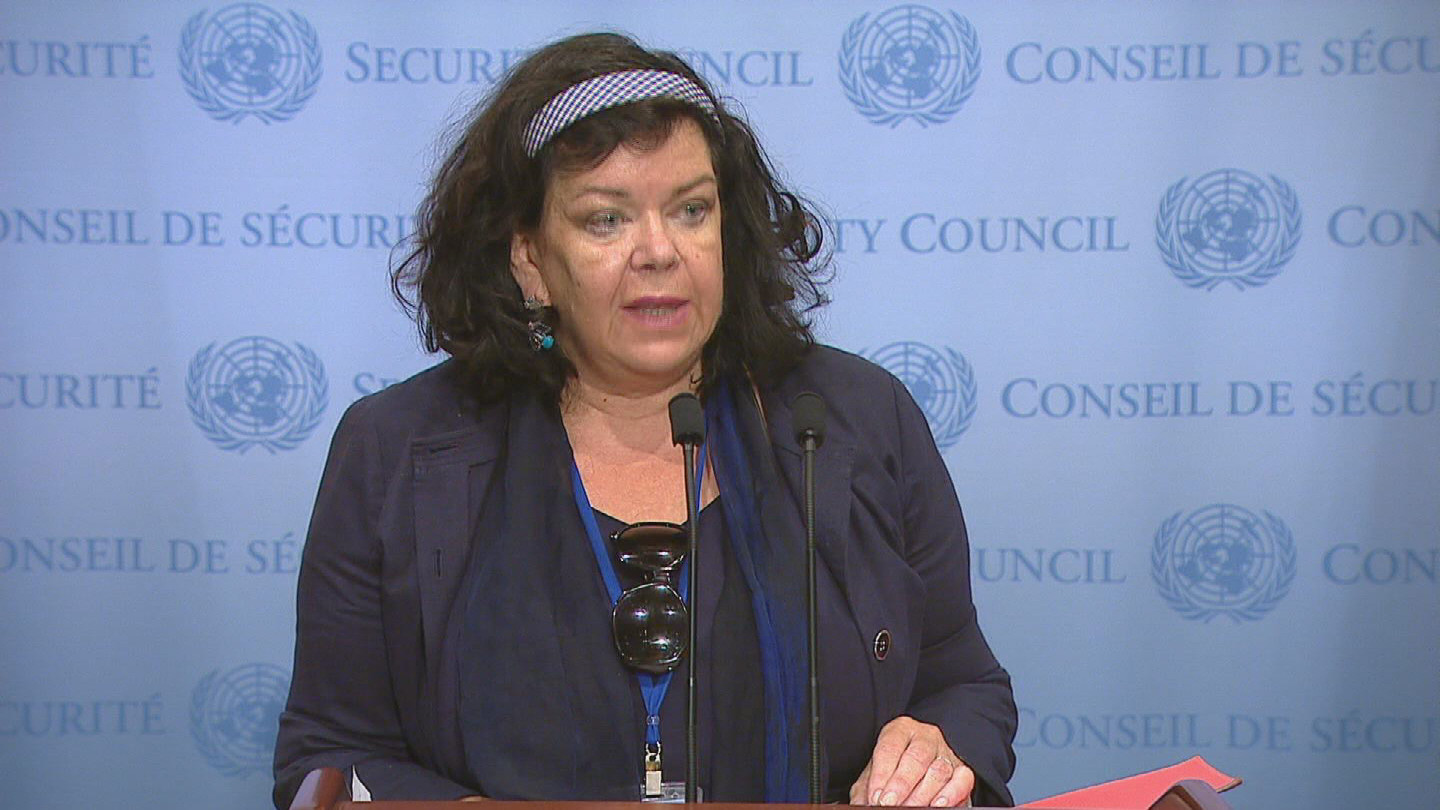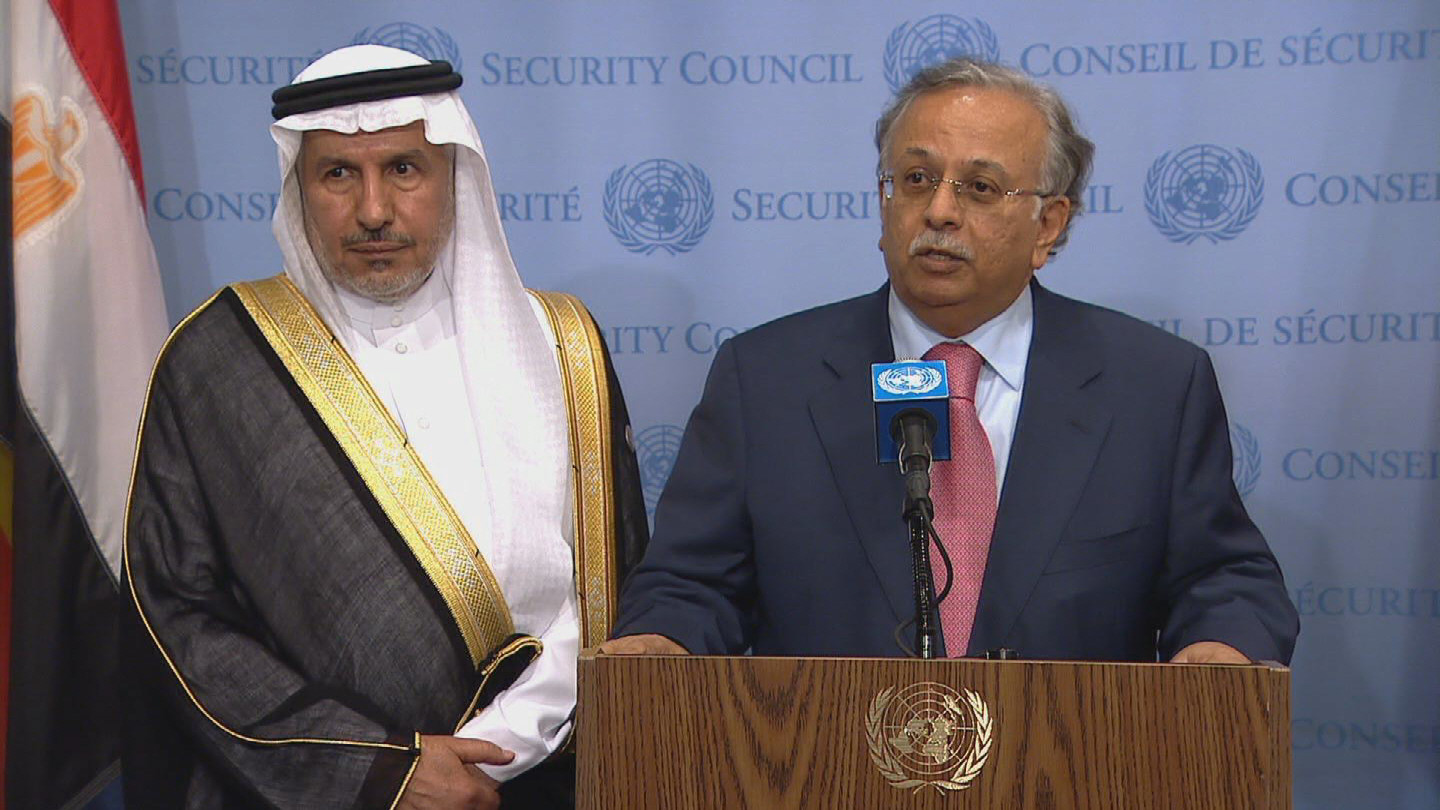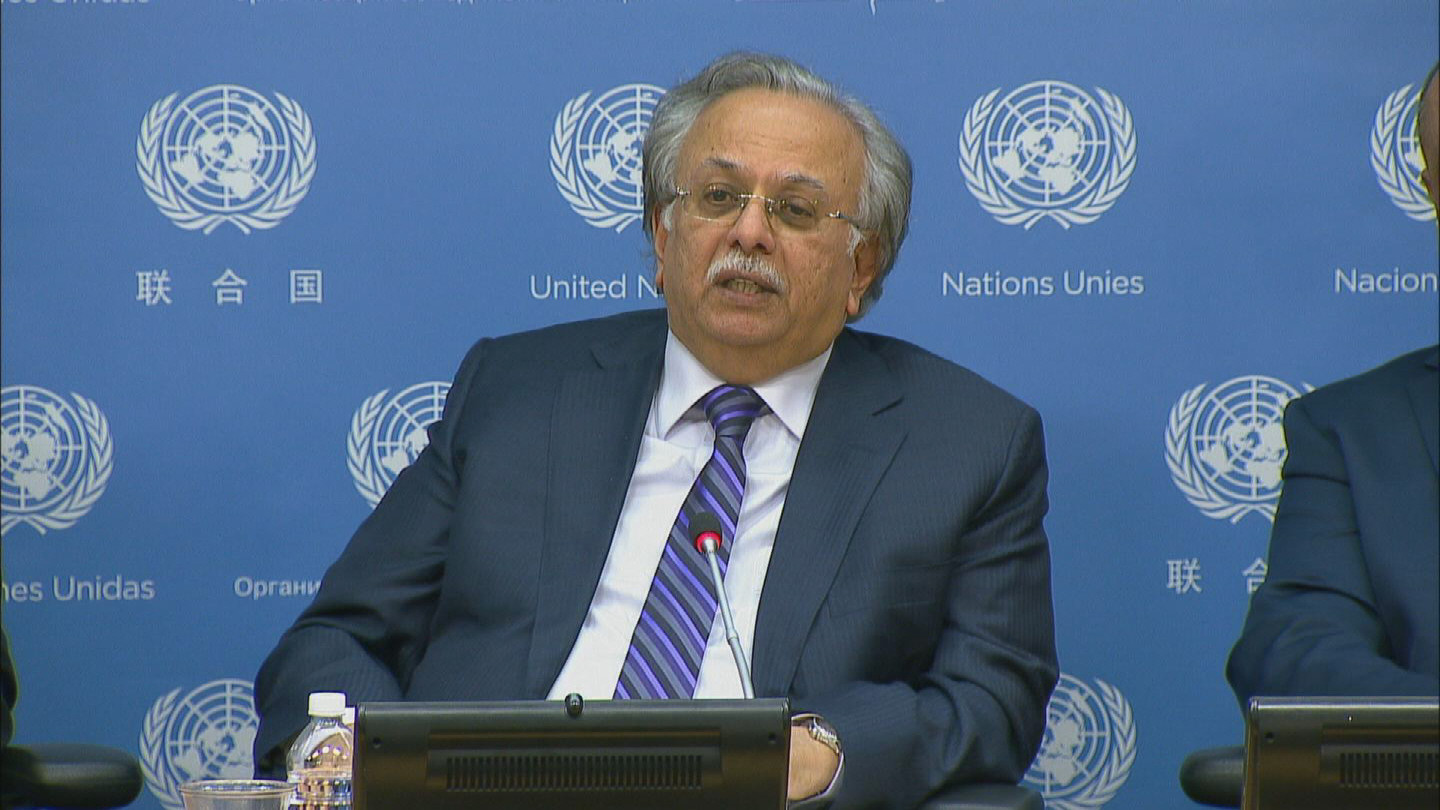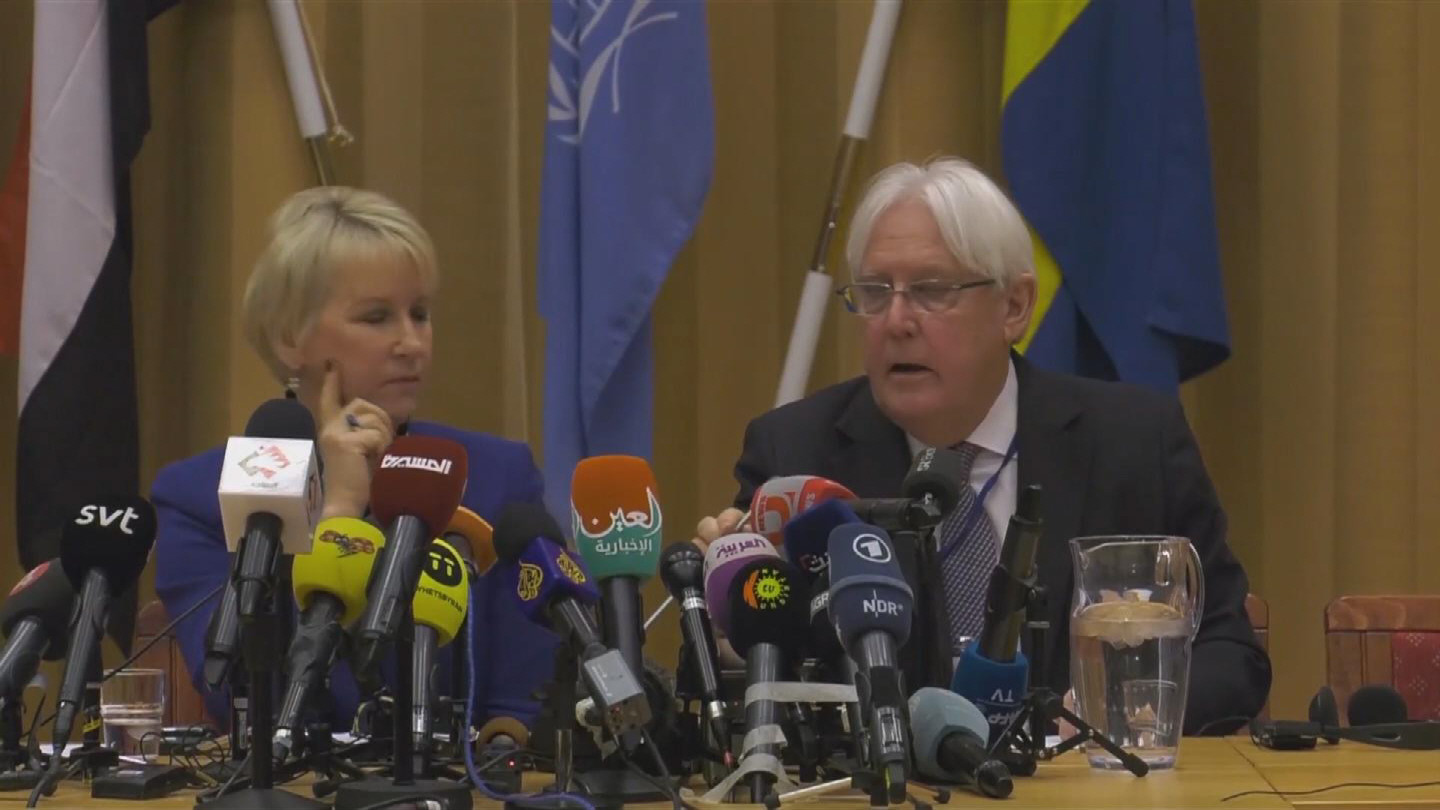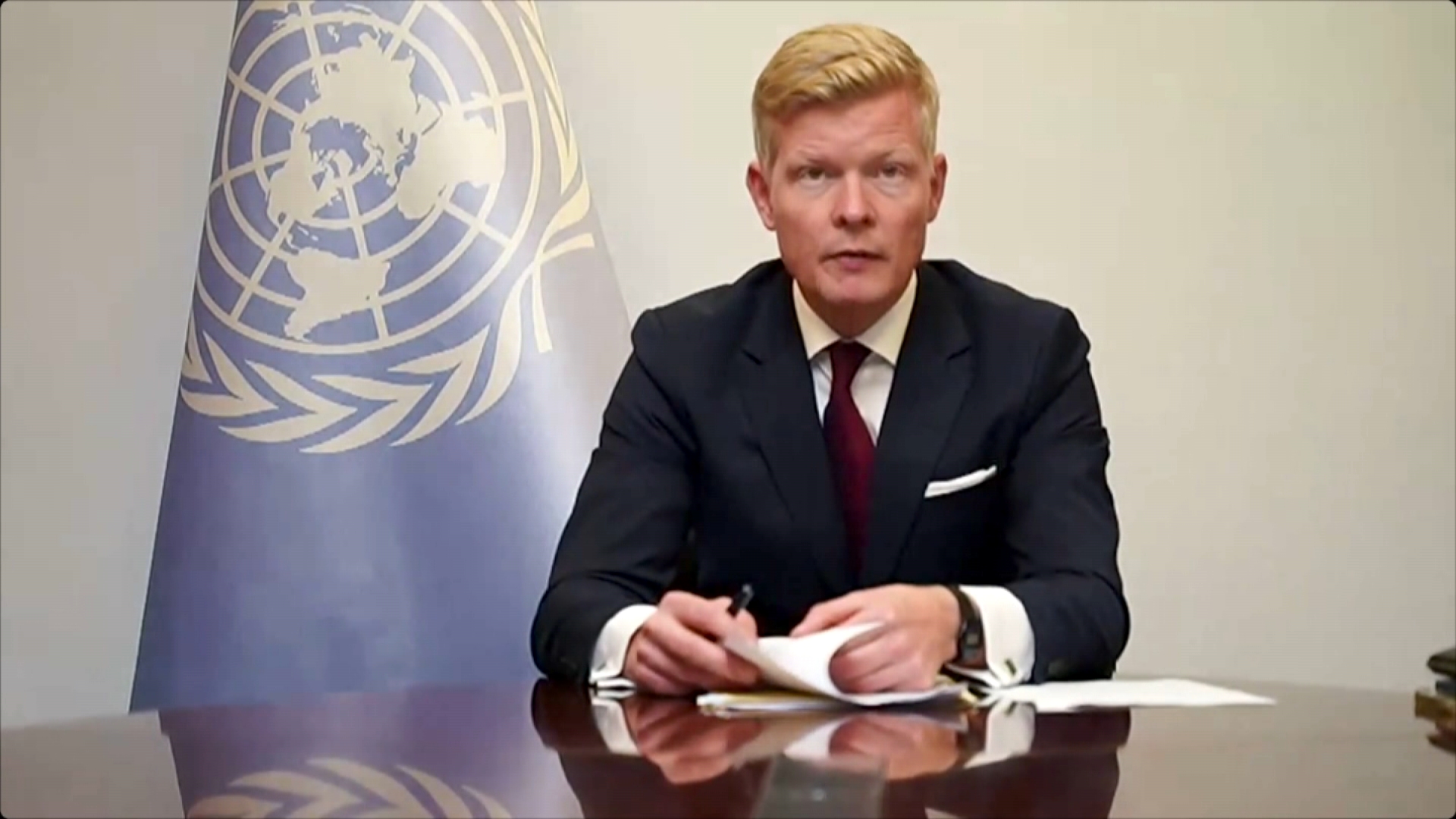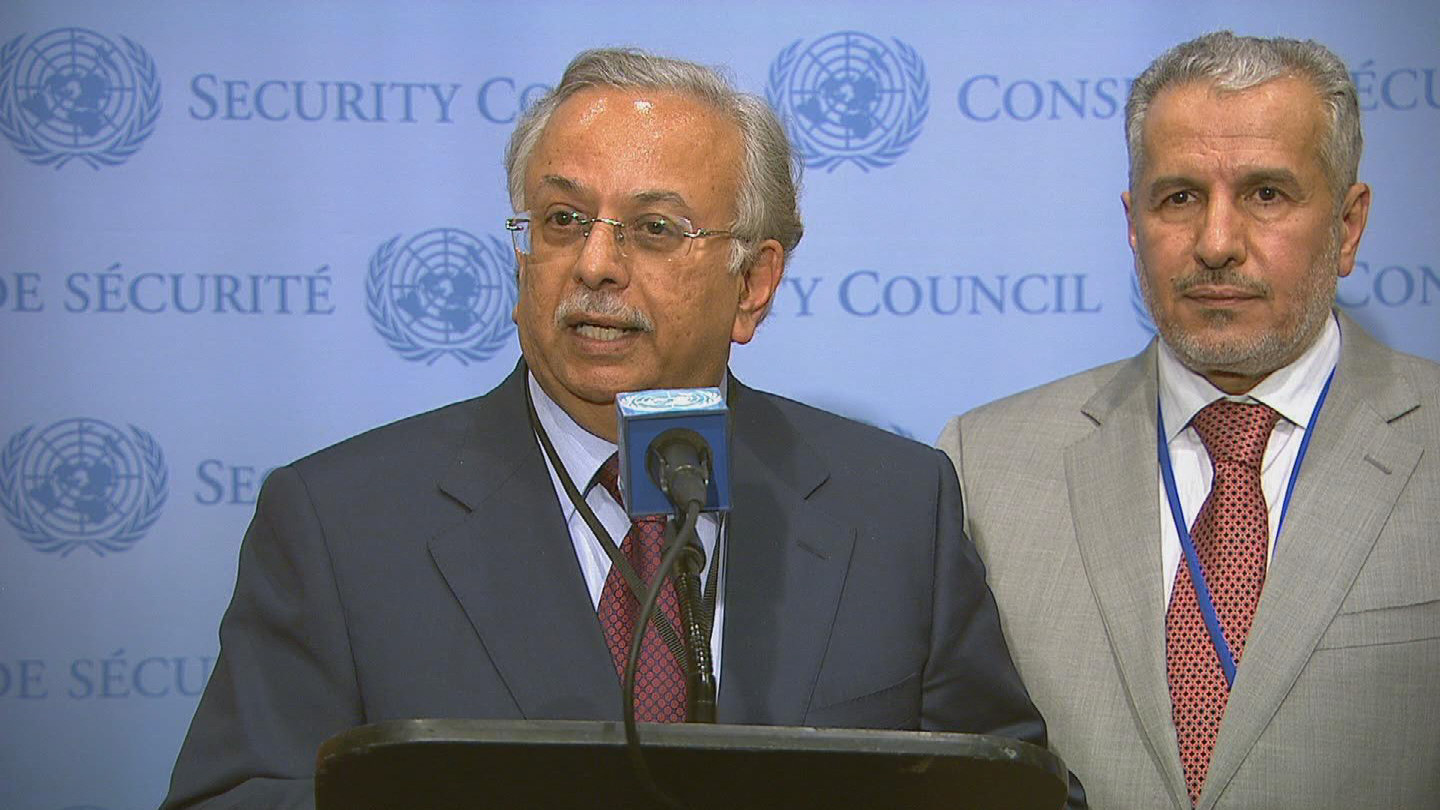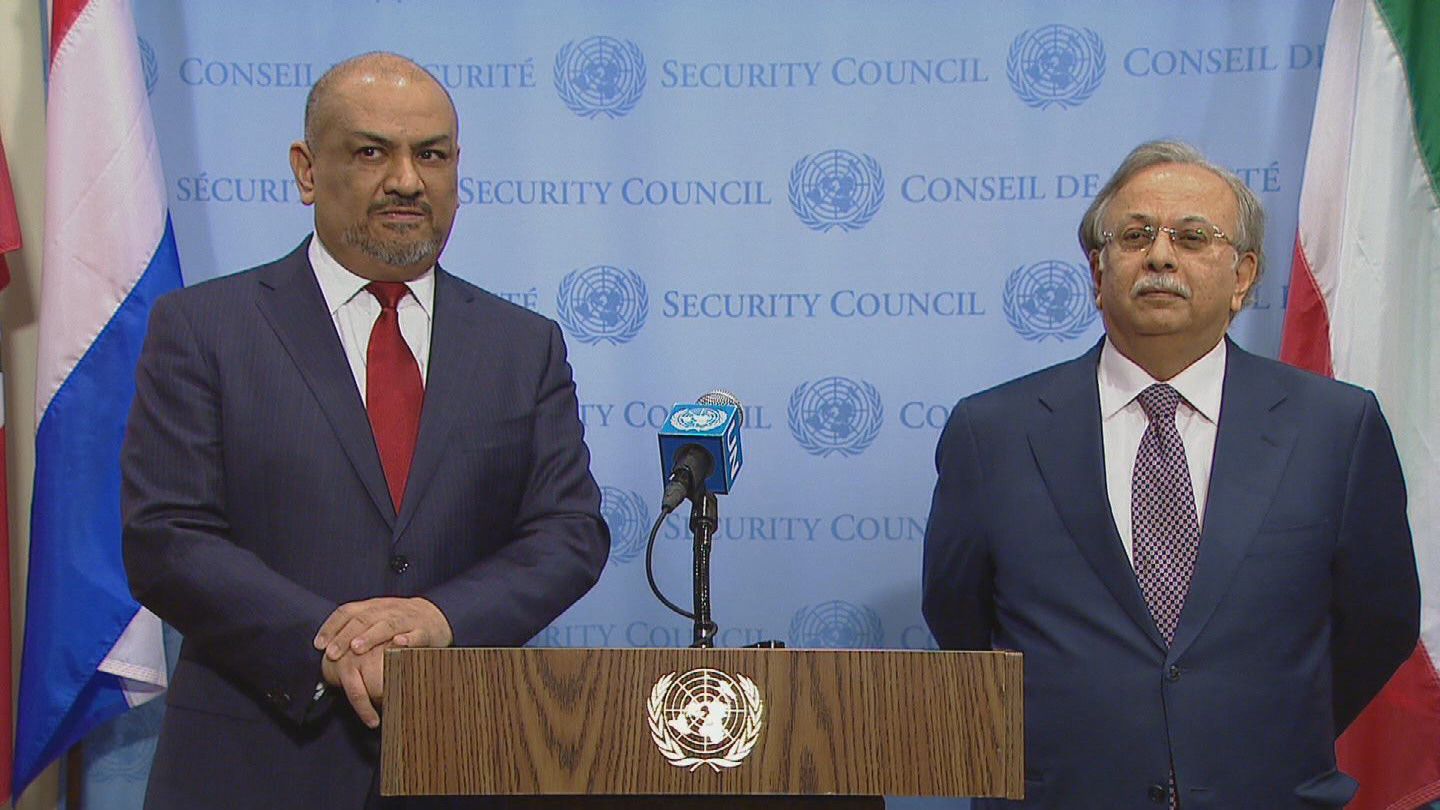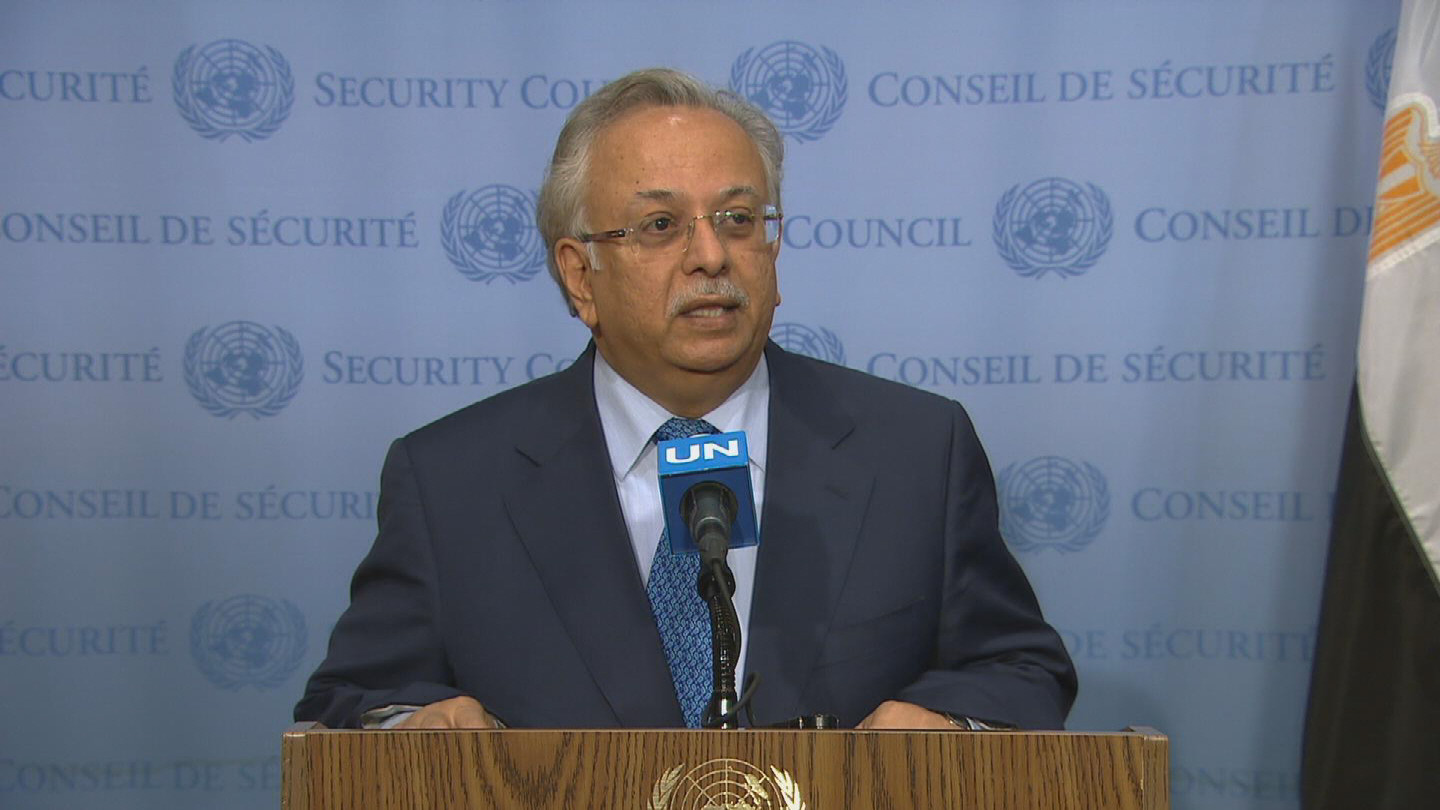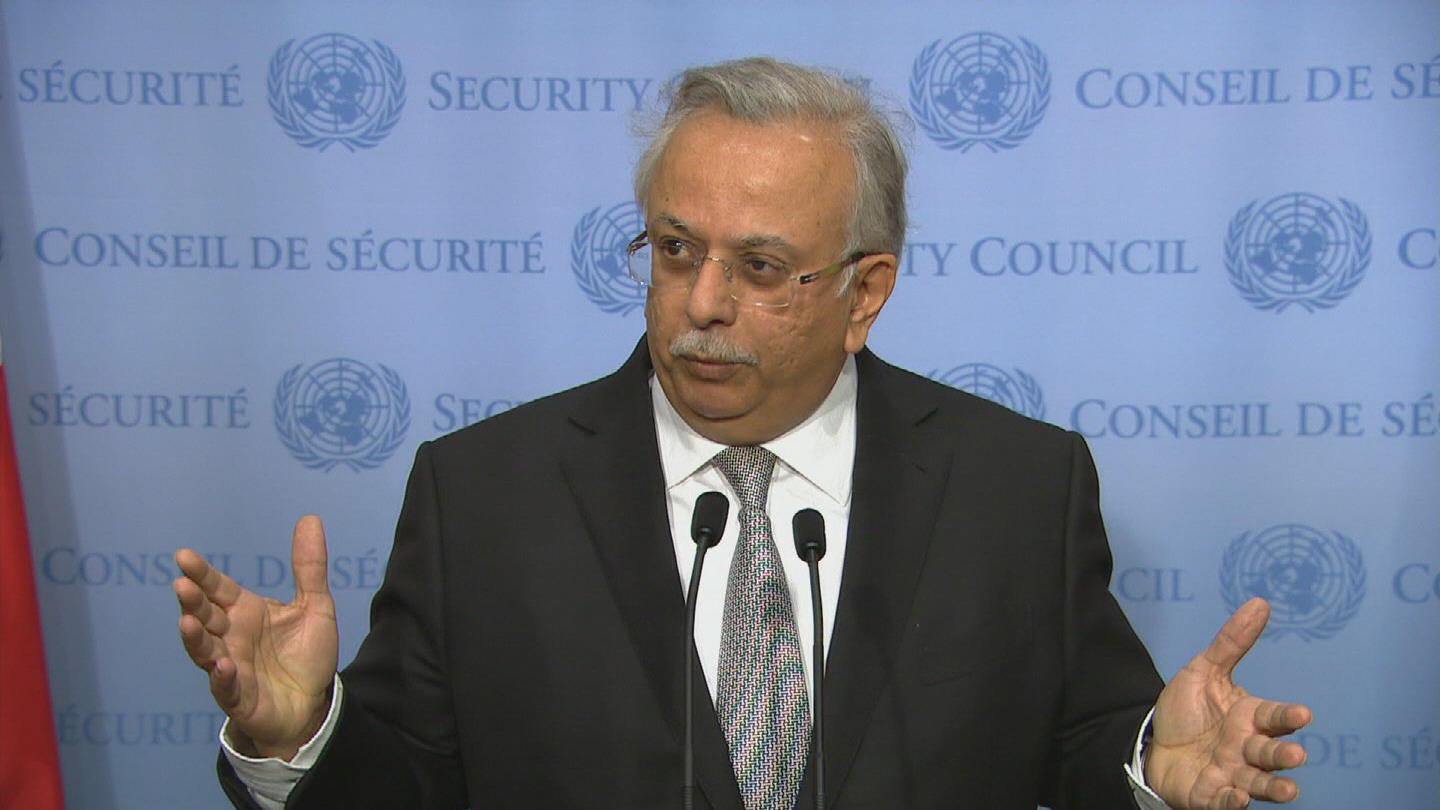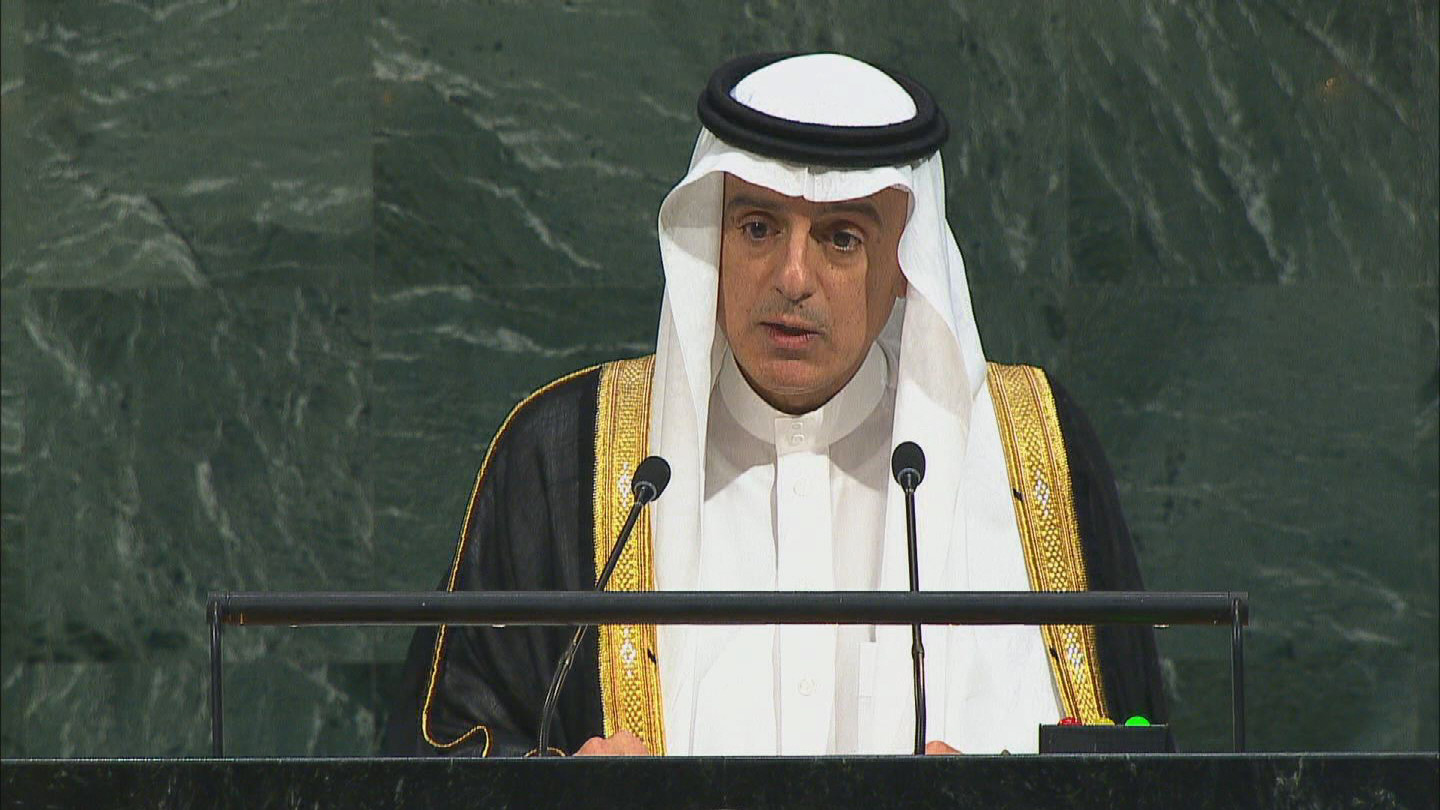UN / GUTERRES YEMEN
Download
There is no media available to download.
Share
STORY: UN / GUTERRES YEMEN
TRT: 02:55
SOURCE: UNIFEED
RESTRICTIONS: NONE
LANGUAGE: ENGLISH / NATS
DATELINE: 02 NOVEMBER 2018, NEW YORK CITY / RECENT
FILE – RECENT, NEW YORK CITY
1. Wide shot, exterior United Nations headquarters
02 NOVEMBER 2018, NEW YORK CITY
2. Zoom out, Guterres walks up to podium
3. SOUNDBITE (English) António Guterres, Secretary-General, United Nations:
“The situation is desperate. We must do all we can to prevent the already dire conditions from deteriorating into the worst famine we have seen in decades. But on the political side, there are signs of hope. And we must do all we can to maximize the chances for success. The international community has a real opportunity to halt the senseless cycle of violence and to prevent an imminent catastrophe. .”
4. Med shot, reporters
5. SOUNDBITE (English) António Guterres, Secretary-General, United Nations:
“It is essential that the Yemeni parties engage in good faith and without pre-conditions with my Special Envoy, Martin Griffiths, to reach a negotiated political settlement to end the conflict. The urgency of the humanitarian crisis leaves no room for complacency. And I welcome recent announcements by Yemeni parties expressing readiness to resume consultations.”
6. Med shot, reporters
7. SOUNDBITE (English) António Guterres, Secretary-General, United Nations:
“We see more and more countries very actively engaged in creating the conditions, or helping to create the conditions, for the parties to understand the need not only of a cessation of hostilities, but to engage in serious political discussions. And obviously, there are moments in which it makes sense to seize the Security Council to obtain the support that is needed for that. I leave that to the members of the Security Council.”
8. Med shot, reporters
9. SOUNDBITE (English) António Guterres, Secretary-General, United Nations:
“I think that it is very important that no missiles or other forms of aggression are sent against Saudi Arabia, and it's very important to stop bombing in urban areas, and it's very important to preserve basic infrastructure, and obviously, Hodeidah is part of that basic infrastructure. These are our priorities as an immediate step in a cessation of hostilities, and I hope that the parties will understand the need to, all of them, the appeal is to all of them, embark in the cessation of hostilities, sooner rather than later, immediately in our opinion, in order to allow for the political process to start.”
10. Wide shot, Guterres at the podium
11. SOUNDBITE (English) António Guterres, Secretary-General, United Nations:
“Our role is to appeal for the parties for a cessation of hostilities. This appeal is now echoed by many very important countries around the world, by the international community as a whole. The consequences of going on with this war will be terrible for the Yemeni people. I must say I'm hopeful that the voice of reason will prevail. Thank you very much.”
12. Pan right, Guterres walks away
Calling the humanitarian situation in Yemen “desperate,” Secretary-General António Guterres said all efforts must be made “to prevent the already dire conditions from deteriorating into the worst famine we have seen in decades.” On the political side, he added, “there are signs of hope” and stressed that the international community “has a real opportunity to halt the senseless cycle of violence and to prevent an imminent catastrophe.”
Speaking today (2 Nov) to reporters in New York, the Secretary-General said it was “essential that the Yemeni parties engage in good faith and without pre-conditions with my Special Envoy, Martin Griffiths, to reach a negotiated political settlement to end the conflict.”
The urgency of the humanitarian crisis, he said, “leaves no room for complacency,” and welcomed “recent announcements by Yemeni parties expressing readiness to resume consultations.”
Guterres said “more and more countries” are “helping to create the conditions, for the parties to understand the need not only of a cessation of hostilities, but to engage in serious political discussions.”
The Secretary-General called for several steps to be taken urgently: an immediate cessation of hostilities, especially in densely populated areas; clearance without restrictions for essential imports such as food and fuel; and ensuring humanitarian access to civilians. He said efforts to kick-start the economy by stabilising the exchange rate of the Yemeni Rial; and paying the salaries and pensions of public servants were also essential; alongside additional funding from the international community for the humanitarian response.
He said it was “very important that no missiles or other forms of aggression are sent against Saudi Arabia, and it's very important to stop bombing in urban areas, and it's very important to preserve basic infrastructure, and obviously, Hodeidah is part of that basic infrastructure.”
Guterres stressed that “the consequences of going on with this war will be terrible for the Yemeni people,” but added that he was “hopeful that the voice of reason will prevail.”
According to humanitarian agencies working on the ground, the massive scale of humanitarian need has turned Yemen into the world’s worst crisis in decades. Cholera is endemic, and famine is looming.
Conflict in the country has its roots in 2011, but the situation escalated dramatically in 2015, when a Saudi-led coalition was invited by the internationally-recognized Government to intervene, uprooting millions and destroying civilian infrastructure across the country.
Since 2015, access to basic services and sources of income has become increasingly challenging and, today, three quarters of the entire Yemeni population – 22 million women, children and men – find themselves dependent on some form of humanitarian assistance to survive.
